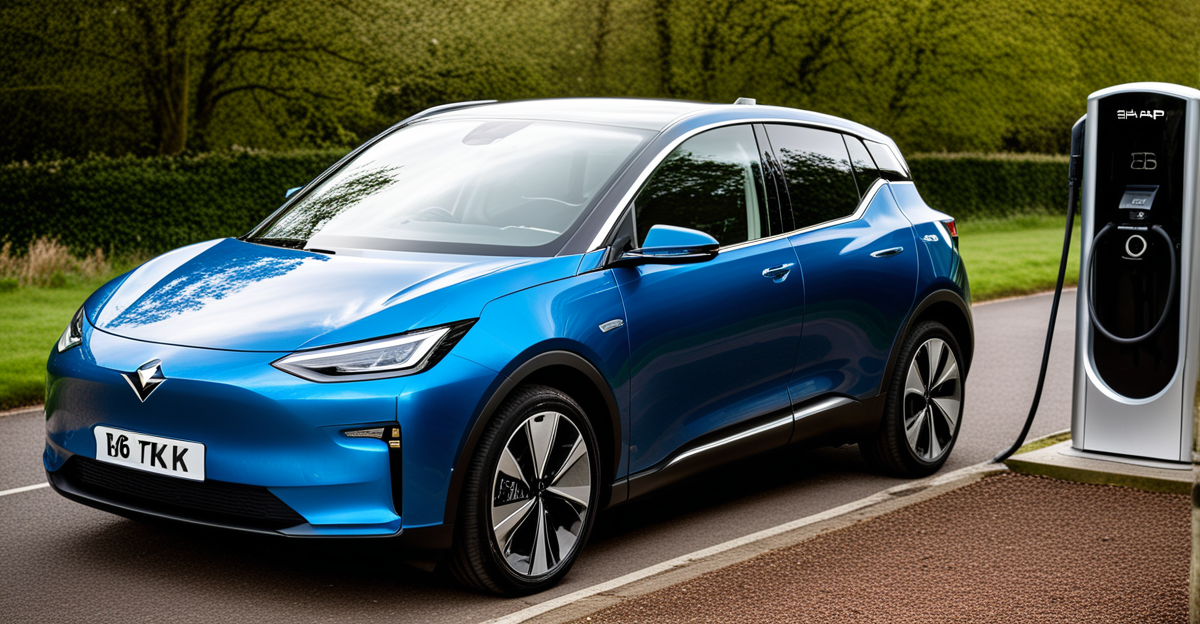Overview of Electric Car Market Growth in the UK
The electric car market UK has witnessed remarkable growth recently, driven by increasing environmental awareness and favorable policies. As of now, electric vehicles (EVs) represent a significant and rapidly expanding share of new car sales. The future of electric cars in the UK appears quite promising, with forecasts projecting an accelerating adoption rate. By 2030, UK EV forecasts predict that electric cars will comprise a majority of new vehicle sales, potentially exceeding 60% market share.
Several factors are propelling this growth. Advances in battery technology continue to enhance driving range and cost-effectiveness, making electric cars more appealing to consumers. Additionally, rising fuel costs and urban air pollution concerns motivate drivers to switch. Government incentives and stricter emissions regulations also play a crucial role, signaling a robust commitment to sustainable transport.
Also read : Why Do Electric Vehicles Dominate the Future of UK’s Automotive Industry?
Understanding these dynamics is essential for stakeholders planning investments or policy measures. The UK’s electric car market demonstrates how a combination of consumer demand, technology, and regulation can together drive rapid transformation toward cleaner mobility options.
Government Initiatives and Policy Impacts
Government policy is pivotal in shaping the electric vehicle landscape in the UK. The UK government electric vehicle policy centers on ambitious zero-emission targets, chiefly the 2030 ban on new petrol and diesel car sales. This policy sends a clear signal: only electric or zero-emission vehicles will be sold from 2030, accelerating future of electric cars adoption.
Also to read : What are the impacts of new trade agreements on the UK automotive industry?
Incentives for EVs remain a cornerstone for stimulating market uptake. These include grants on new electric cars and financial support for home charger installations. Such incentives help lower upfront costs, a key barrier minimized by government action. Supporting policies also extend to reduced road taxes and exemptions from congestion charges in some cities, making EV ownership more affordable and attractive.
The interplay between these policies and UK EV forecasts is striking. Analysts predict that due to these measures, electric cars could capture over 60% of new vehicle sales by 2030. Government efforts thus directly fuel the expanding electric car market UK, promoting cleaner, sustainable transport and encouraging manufacturers to innovate toward greener vehicles.
Charging Infrastructure Advancements
Expanding the UK EV charging infrastructure is essential to support the rapid growth in electric car adoption. Public charging stations have increased significantly, with networks targeting urban areas, motorways, and rural locations to reduce range anxiety among drivers. This expansion ensures that the electric car market UK can continue growing without drivers fearing limited access to chargers.
Fast and ultra-rapid charging technologies play a critical role. These chargers can replenish battery capacity in 20 to 30 minutes, making longer journeys more feasible and appealing. Such developments directly influence the future of electric cars by improving convenience and usability.
Addressing regional gaps remains a priority. Some areas, especially outside major cities, face shortages in charging points. Strategic investments and partnerships aim to close these gaps, ensuring equitable access. The continued growth in charger availability aligns with positive UK EV forecasts, which depend heavily on robust infrastructure.
In summary, improving the charging network strengthens consumer confidence and supports sustained EV uptake, crucial for achieving the UK’s 2030 zero-emission ambitions.
Overview of Electric Car Market Growth in the UK
The electric car market UK is expanding rapidly, reflecting rising consumer interest and supportive market conditions. Current data shows electric vehicles represent an increasing share of new car sales, driven by multiple factors. Among these, advancements in battery technology significantly improve driving range and reduce costs, making EVs more attractive. Additionally, climate concerns and regulatory pressures catalyze shifts toward electric transport.
UK EV forecasts predict that by 2030, electric cars could account for over 60% of new vehicle sales. This growth rate is fueled by a combination of government incentives, improved infrastructure, and better vehicle affordability. Urban areas, where pollution is a major concern, often show higher EV adoption levels, signaling changing consumer behaviour aligned with sustainability goals.
Moreover, the future of electric cars looks promising due to continuous innovation in battery chemistry and vehicle design. These advances enhance performance and charging efficiency, which further motivates consumers. The synergy of technology, policy, and consumer demand propels the UK’s electric car market toward becoming a mainstream option in transportation.
Technology Developments and Innovation
The electric car technology UK sector is evolving rapidly, with significant strides in EV battery advancements that improve both efficiency and driving range. Current battery improvements focus on increasing energy density, enabling vehicles to travel further between charges while reducing overall weight. This directly addresses one of the key factors limiting adoption: range anxiety.
Emerging technologies, such as solid-state batteries, promise even greater breakthroughs. These batteries offer higher capacity, faster charging, and improved safety compared to traditional lithium-ion options. Meanwhile, wireless charging is gaining attention for its potential to simplify daily charging routines, boosting convenience for EV owners.
The UK plays a vital role in this global innovation landscape. Research institutions and manufacturers collaborate to develop next-generation EVs, integrating cutting-edge materials and electronics. These advancements not only enhance vehicle performance but also reduce production costs, which supports widespread market growth.
By staying at the forefront of electric car technology UK, the sector ensures the future of electric cars remains bright. Continuous innovation is crucial for meeting UK EV forecasts that anticipate a surge in electric car adoption well beyond 2030, driven by improved battery capabilities and novel technologies.
Overview of Electric Car Market Growth in the UK
The electric car market UK has experienced accelerated adoption in recent years. Current statistics show a steady increase in EV registrations, with electric vehicles capturing a growing share of new car sales. This momentum is largely driven by improvements in affordability, enhanced driving ranges, and widened consumer acceptance. The future of electric cars in the UK is expected to see further robust growth, with industry experts and UK EV forecasts predicting EVs will account for more than 60% of new vehicle sales by 2030.
Several factors influence this surge. Consumer concerns over climate change and rising fuel prices push more drivers toward electric options. Additionally, urban pollution regulations and evolving charging infrastructure encourage adoption. Market dynamics also benefit from expanding model choices and continued battery innovation, addressing range anxiety and cost barriers.
Understanding the trajectory of the electric car market UK requires monitoring these intertwined drivers. The combined effect of technological progress, policy support, and shifting consumer behaviour compels optimistic projections in UK EV forecasts. These factors collectively shape a future where electric vehicles become mainstream, reinforcing sustainable mobility goals across the UK.
Overview of Electric Car Market Growth in the UK
The electric car market UK is experiencing rapid expansion, fueled by significant growth in electric vehicle registrations. Currently, EVs account for an increasing proportion of new car sales nationwide, indicating rising consumer confidence in this technology. According to UK EV forecasts, electric vehicles could surpass 60% market share by 2030, reflecting aggressive adoption trends.
Several key factors influence this growth. Technological advances in battery range and cost reduction make electric cars more accessible and practical. Additionally, heightened awareness of climate change and urban air quality concerns motivates consumers to transition from petrol and diesel vehicles. Policy frameworks and expanding charging infrastructure also play crucial roles in accelerating market uptake.
Projected growth rates suggest a steep upward trajectory for the future of electric cars, where improved vehicle options and affordability will attract diverse segments of the population. Manufacturers are responding by broadening EV model offerings, meeting evolving consumer preferences. Enhanced battery technology further mitigates range anxiety, a previous barrier impacting adoption rates.
Together, these dynamics position the electric car market UK for sustained growth, reflecting an overall shift toward sustainable mobility and a lower-carbon future. The rise in EV popularity complements comprehensive UK EV forecasts that underscore a transformative change in vehicle ownership patterns.





